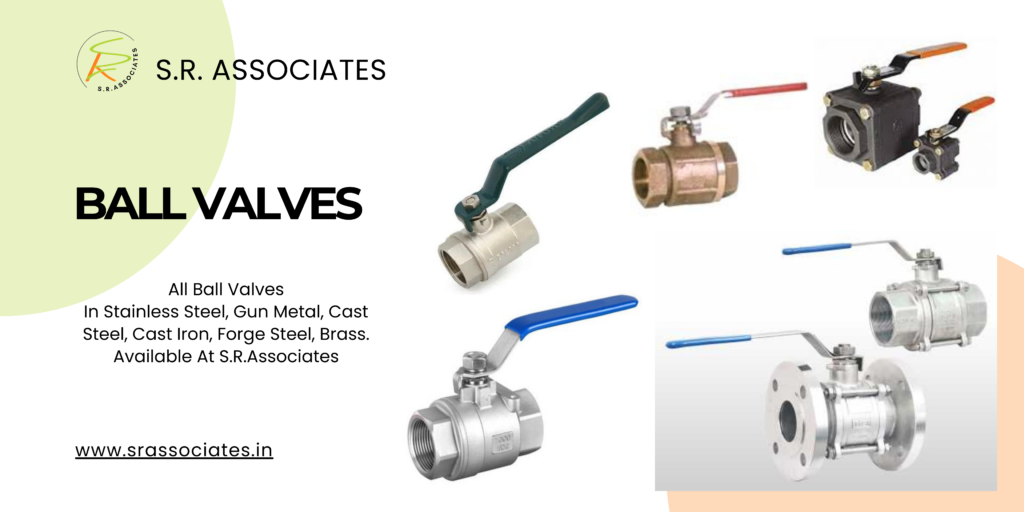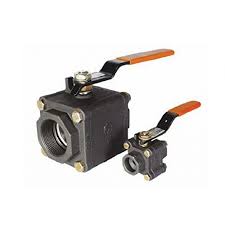Ball Valves

Ball Valves
Ball valves are versatile and widely used components in fluid control systems. They are designed to provide efficient shut-off and control of fluids through the use of a spherical disc (the “ball”) that rotates to open or close the flow path. Known for their reliability, ease of operation, and durability, ball valves are an essential part of many industrial, commercial, and residential applications.
Construction and Operation:
- Design:
- The ball valve consists of a spherical ball with a hole (bore) in the middle. The ball is situated between two seats, and when rotated 90 degrees by the valve handle or actuator, it opens or closes the flow path.
- Materials:
- Ball valves are constructed from a variety of materials, including stainless steel, brass, bronze, PVC, and carbon steel, allowing for compatibility with different media and operating conditions.
- Components:
- Key components include the valve body, ball, stem, seats, seals, and handle or actuator.
Key Features:
Quick Operation:
- Ball valves offer fast opening and closing, typically requiring only a 90-degree turn of the handle to move from fully open to fully closed.
Tight Seal:
- The design provides a reliable seal, minimizing the risk of leaks and ensuring effective flow control.
Durability:
- Constructed with robust materials, ball valves can withstand high pressures and temperatures, making them suitable for demanding applications.
Low Maintenance:
- Due to their simple design and minimal moving parts, ball valves require less maintenance compared to other types of valves.
Versatile Applications:
- Suitable for use in a wide range of applications, including water, gas, oil, and chemical processes.
Full Bore Design:
- Some ball valves feature a full bore design, offering unobstructed flow with minimal pressure drop.
Constructed from stainless steel, these ball valves offer excellent corrosion resistance, making them suitable for a wide range of applications including corrosive fluids, high-pressure environments, and industries such as chemical processing, oil and gas, and marine. Stainless steel ball valves provide reliable flow control and durability in demanding operating conditions.
Made from carbon steel, these ball valves are known for their strength and durability. Carbon steel ball valves are commonly used in industrial applications where high pressure and temperature conditions are present, such as in oil and gas pipelines, petrochemical plants, and power generation facilities.
Constructed from cast iron, these ball valves are robust and economical. Cast iron ball valves are typically used in applications where moderate pressure and temperature conditions prevail, such as water distribution systems, HVAC systems, and general-purpose industrial processes.
Manufactured from brass, these ball valves offer good corrosion resistance and are suitable for applications involving non-corrosive fluids such as water, air, and non-aggressive gases. Brass ball valves are commonly used in plumbing systems, irrigation, HVAC systems, and general industrial applications where reliability and cost-effectiveness are important.
Made from gunmetal, a type of bronze alloy, these ball valves offer excellent resistance to corrosion and dezincification, making them suitable for use in seawater, brackish water, and other corrosive environments. G.M. ball valves are commonly used in marine applications, offshore installations, and industries where corrosion resistance is paramount.
Each type of ball valve has its unique characteristics and is selected based on the application’s specific requirements, including factors such as fluid compatibility, pressure and temperature conditions, environmental factors, and cost considerations.




